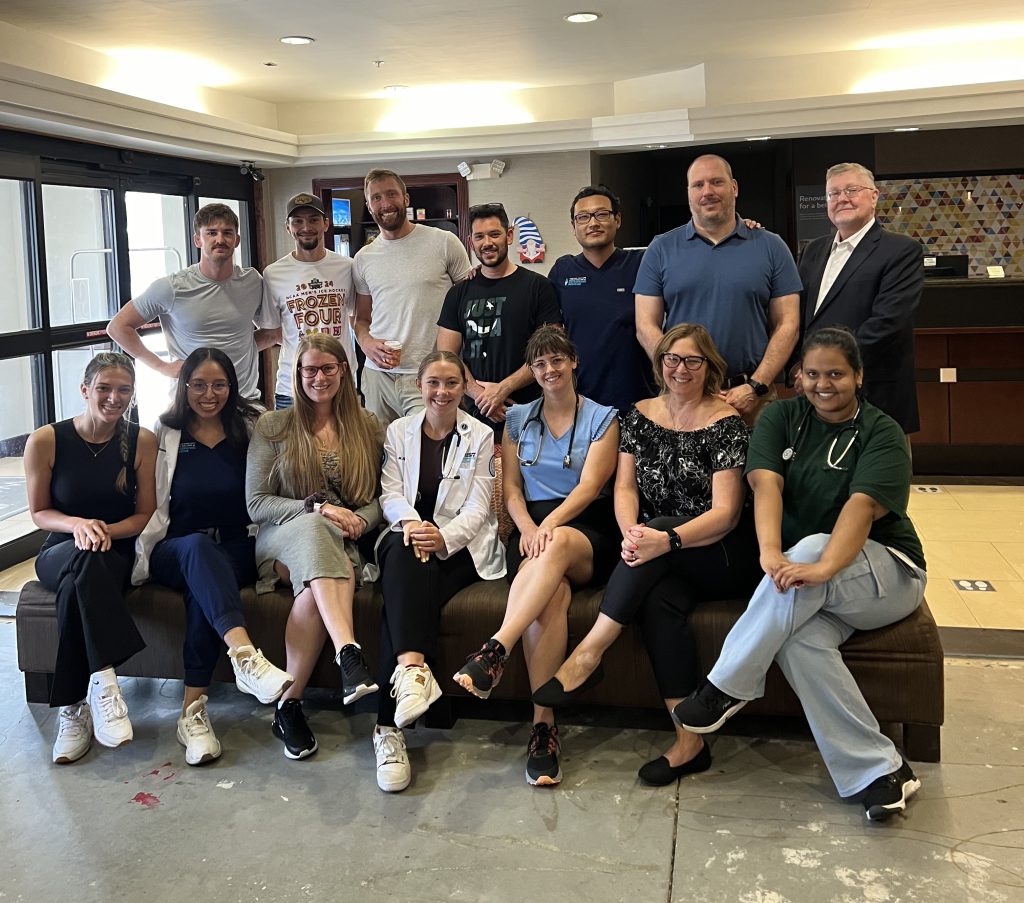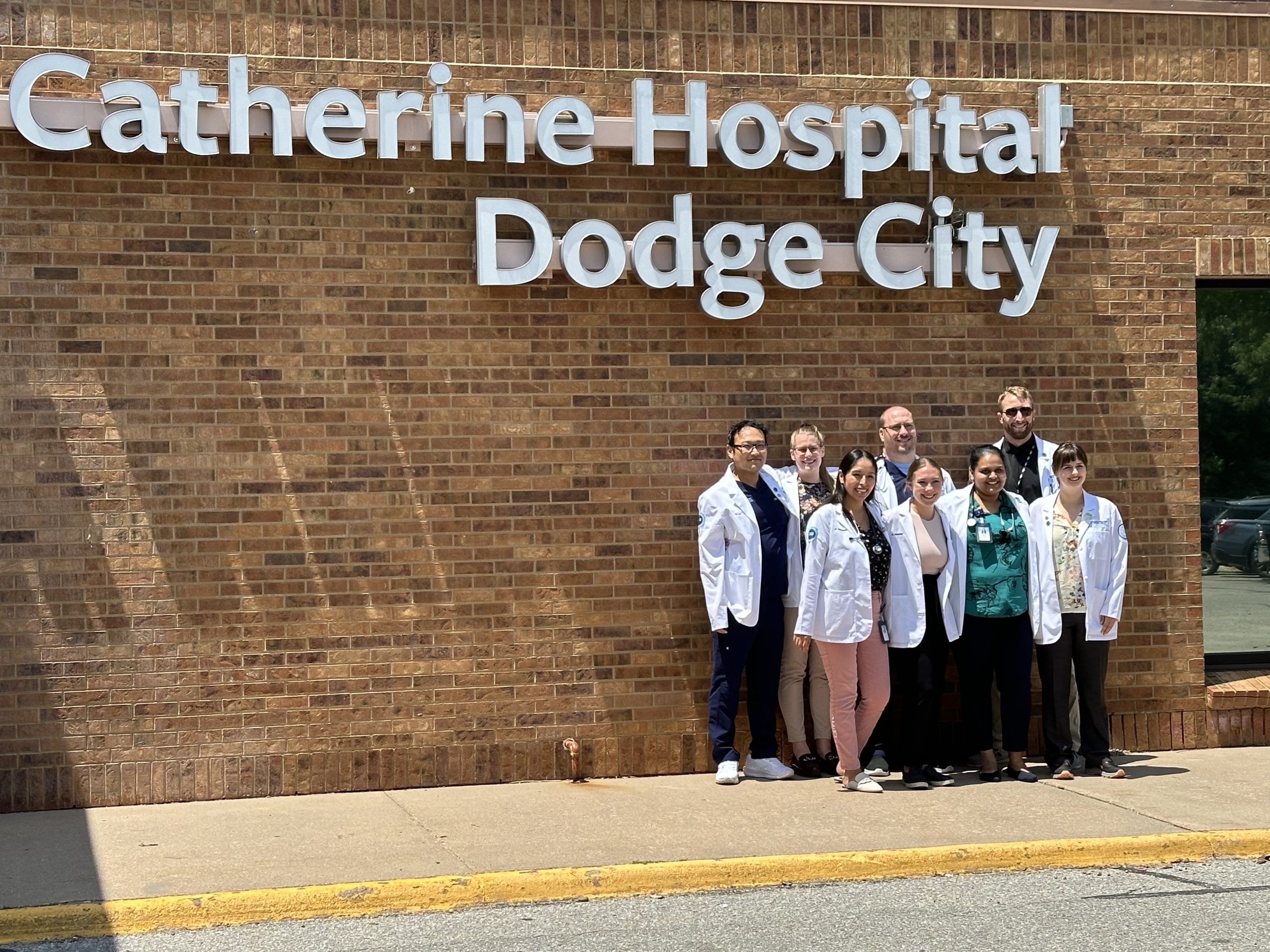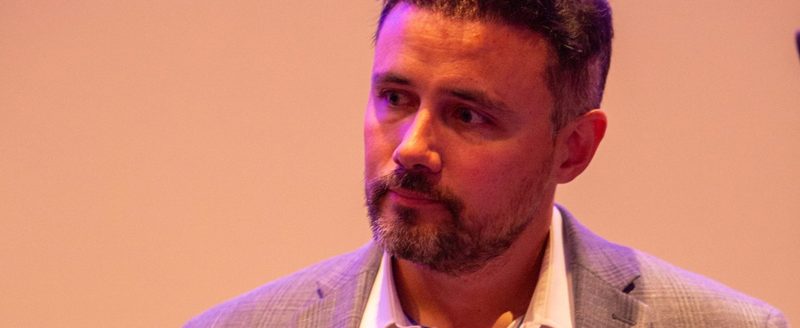Half the Kansas population lives in medically underserved areas.
Dr. Robin Durrett, clinical faculty at the Kansas College of Osteopathic Medicine, said a July visit to western Kansas showed student doctors what working in Garden City and Dodge City, Kansas, would look like. This is the second year of the immersion program.
According to Durrett, Kansas ranks 39th in physicians per capita in the United States and 48th in healthcare quality. That doesn’t mean the state provides poor care. Instead, it means if someone needs to see a specialist in a rural area, he or she has to wait a prolonged period of time.
It’s estimated about 30% of physicians are nearing retirement age, and Durrett expects the shortage to worsen. He hopes the rural immersion program can help remedy the shortage.
The Kansas Health Science University is in the middle of starting its own residency program—surgery and family practice, with a concentration on primary care.
“How do you get a physician to practice in a rural area? It’s well shown that if you do a residency in an area, you’re going to practice within a couple hundred miles of that residency program,” he said.
If a doctor goes to a school in that region and also does his or her clinical rotations there, it helps in the recruiting process, Durrett said.
The KHSU is a not-for-profit organization that’s dedicated to improving healthcare in the United States, and in Kansas it focuses on rural care.
“We’ve got an innovative medical educational model,” Durrett said. “Our goal is the needs of the community. We weren’t formed by saying, ‘Hey, let’s go in and let’s do this.’ We’re formed by saying, ‘Hey, what are the needs of the area?’ ”
When Sam Brownback was governor, Durrett said he recognized the need for a medical school in the state. Later on, Gov. Jeff Colyer agreed, and he thought it needed to be an osteopathic school.
Depending upon the data that’s observed, Durrett said 70 to 90% of the counties in Kansas are wholly or partially medically underserved.
“So, the goal is to help physicians in these rural, medically underserved areas,” he said. “We know that the national physician shortage is 50,000 to 120,000 by the year 2032.”
KHSU has partnered with CommonSpirit hospitals in Garden City, Ulysses and Dodge City and Hays Medical Center. The first group of students have completed rotations in nine core areas, ranging from psychiatry and emergency medicine to pediatrics, family practice, obstetrics and surgery, plus subspecialties.
Spending nearly two weeks working with doctors in the identified areas gave the student doctors time to be exposed to rural areas of Kansas in the towns and cities where they’d end up practicing.
“And the idea is to get the students exposed to rural Kansas and let them see that by spending 10 days out there,” he said. “When they were there, they went to the rodeo, they went to a baseball game, to the enormous water park in Garden City, and so they get ingrained into the community.”
During the day, the students completed rotations with physicians at the hospital and in the community. They were able to get a taste of rural medicine and see what practice is like in southwest Kansas. Many were able to meet with community leaders, and there were a couple of receptions held with chambers of commerce.
The immersion program takes place after the student doctors have completed their first year of medical school and are in good standing. Durrett hopes the students have such a good experience they realize when it comes time for their rotation years of medical school that they could handle doing so in a rural area of Kansas.
“They could actually spend up to nine months in their third year doing their core rotations in one of these rural areas, and get used to the practice there,” he said. “And when they go off to their residency programs, they say, ‘Hey, you know what? I had a great time out in this rural area, and the people in Garden City were great to me and Dodge City’ and our other partners in western Kansas.”
KHSU had so much interest after the first students participated in 2023 that there is now a competitive interview process to participate. Practicing in a rural area that’s underserved also can benefit the student doctors as there are a couple of school loan repayment programs that, according to Durrett, can “make a huge dent and even pay off a student’s school loans over a period of time.”
“They’re aware of those programs,” he said. “It’s very appealing to these young students and a way for them out of medical school and residency training with a way to rapidly pay off their medical school loans, and, hopefully, after practicing there for a while, they’ll call it home, raise their families there and help with the rural health care crisis.”
When Durrett was starting out, he sought out a small town where he could be involved in the community and in his young children’s education and activities. He picked the Hoisington/Great Bend/Ellinwood area in Barton County mostly because of its location for hunting and other outdoor activities.
It also provides an intrinsic opportunity. “You get a chance to participate in the community. Your patients are your church members, your colleagues at school, and you meet other parents, and you get to know everybody,” he said.
Several students already had rural backgrounds. One was from Pratt, and another was from rural Iowa.
“As far as rural students go, we do actively recruit from rural Kansas and look for those students who are interested in going back and practicing in primary care, and we push that in our interviews on the admissions committee,” he said.
Durrett has been pleased with how the program has progressed in its second year. and the response from the communities has been positive.
“We were overwhelmed with response from the community, and we couldn’t get everybody that wanted to be involved, and so we’ve tried to add some new things,” he said.
Durrett sees nothing but positives from the program and believes it will continue to grow. There are even conversations about taking two groups just to be able to get them introduced to the communities. In 2024, the students were able to rotate with physicians in the hospital and clinics.
“They even scrubbed into surgery and assisted in patient care,” he said. “We’re going to look forward to our partnership with western Kansas. We’re going to keep our ears open to them and see what they need, and that’s the whole idea.”
Kylene Scott can be reached at 620-227-1804 or [email protected].





